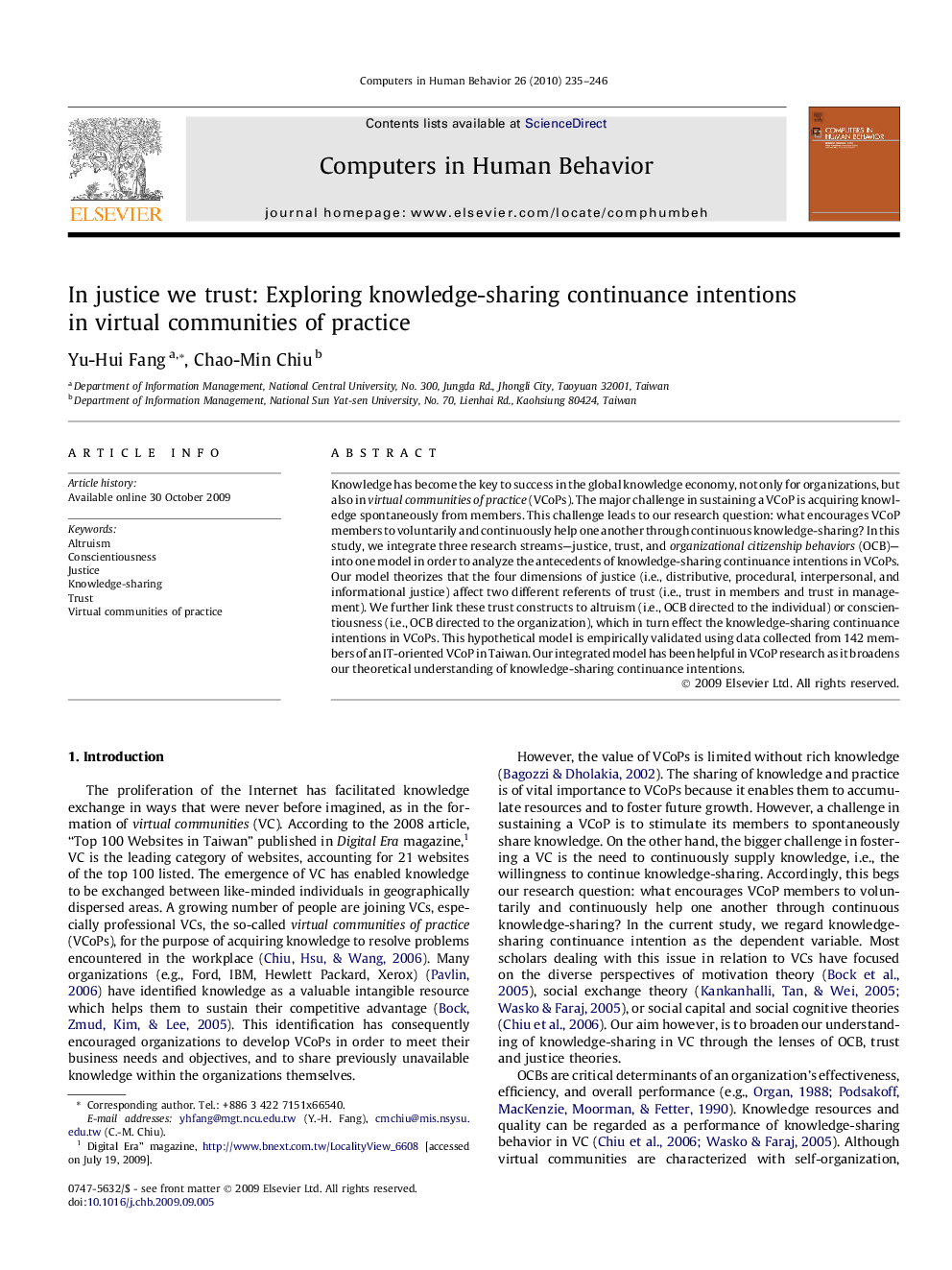| Article ID | Journal | Published Year | Pages | File Type |
|---|---|---|---|---|
| 352052 | Computers in Human Behavior | 2010 | 12 Pages |
Knowledge has become the key to success in the global knowledge economy, not only for organizations, but also in virtual communities of practice (VCoPs). The major challenge in sustaining a VCoP is acquiring knowledge spontaneously from members. This challenge leads to our research question: what encourages VCoP members to voluntarily and continuously help one another through continuous knowledge-sharing? In this study, we integrate three research streams—justice, trust, and organizational citizenship behaviors (OCB)—into one model in order to analyze the antecedents of knowledge-sharing continuance intentions in VCoPs. Our model theorizes that the four dimensions of justice (i.e., distributive, procedural, interpersonal, and informational justice) affect two different referents of trust (i.e., trust in members and trust in management). We further link these trust constructs to altruism (i.e., OCB directed to the individual) or conscientiousness (i.e., OCB directed to the organization), which in turn effect the knowledge-sharing continuance intentions in VCoPs. This hypothetical model is empirically validated using data collected from 142 members of an IT-oriented VCoP in Taiwan. Our integrated model has been helpful in VCoP research as it broadens our theoretical understanding of knowledge-sharing continuance intentions.
